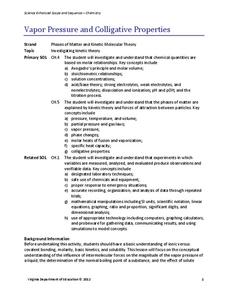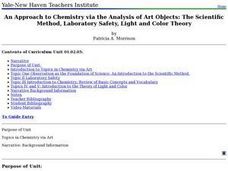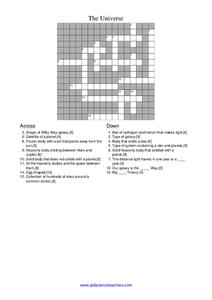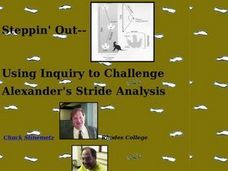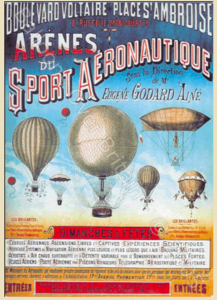Virginia Department of Education
Vapor Pressure and Colligative Properties
Hate to vacuum, but enjoy using a vacuum pump? Explore a lesson that starts with a demonstration of boiling water at various temperatures by using a vacuum pump. Then scholars design their own experiments to measure vapor pressure and...
Virginia Department of Education
Molecular Model Building
During this hands-on activity, young chemists build molecular models based on the Lewis dot structure before studying valence shell electron pair repulsion theory.
Space Awareness
History of the Universe
Your pupils may believe that you and their parents are the oldest things in the universe, but surprise! There are elements of the universe that are even older. Elementary scientists create a class timeline to demonstrate the...
University of Georgia
Stoichiometry of S'mores
How fun would it be to teach the concept of stoichiometry while allowing your chemistry class to assemble a classic campfire treat? This fun and engaging activity allows pupils to explore the principles of the chemical theory while...
CK-12 Foundation
Black Hole
What happens to radio waves, time, and light in and near a black hole? Young scientists explore what is known about observing frequency and time at various distances from a black hole. They control the size of the black hole and the...
Virginia Department of Education
Elements and Electron Configuration
It's electronic! Pupils uncover elements and their electron configurations as they explore mass, groupings, correct charges, and sliding theory. Young scientists learn creative ways to remember various elements and correctly...
ReadWriteThink
Webcams in the Classroom: Animal Inquiry and Observation
Boost observational skills with an inquiry-based instructional activity that takes scholars on a virtual field trip. With help from webcams, learners observe animals in a zoo or aquarium. Observations go into a journal and a discussion...
California Department of Education
Consonance and Dissonance: Creating Intervals for Emotions (CTE)
How are music and emotion related? Using lesson plan two of four from the Changing One's Tune: A Music Therapy STEM Integrated Project Series, scholars explore the connection between the two topics. They learn to recognize different...
Curated OER
An Approach to Chemistry via the Analysis of Art Objects: The Scientific Method, Laboratory Safety, Light and Color Theory
Students create a painting that clearly exemplifies the use of primary pigments to make secondary pigments. They demonstrate the distinction between value and saturation. They explain the affect of adjacent colors on each other and...
Curated OER
The Universe
In this space science instructional activity, students use the clues given at the bottom of the sheet to complete the crossword puzzle relating to the universe. There are 16 clues to solve in the puzzle.
Curated OER
Science and the Ocean Ranger Disaster
Students investigate the scientific theories behind various elements of the Ocean Ranger disaster. They present their information in a format of their choosing.
Curated OER
Steppin' Out: Using Inquiry to Challente Alexander's Stride Analysis
Learners distinguish between walking, jogging and running trackways in humans. They analyze the phylogenetic progression of the leg position as described by pace width and angulation, comparing amphibians, reptiles and mammals. Research...
Curated OER
The Theory of Evolution
In this theory of evolution worksheet, students review vocabulary words associated with evolution including the different types of evolution patters. This worksheet has 5 true or false and 5 matching questions.
Curated OER
Relative History
Students explore theories about how the Olmec civilization influenced other Mesoamerican societies. They research the Olmecs to create a museum exhibit of their findings and reflect on how an Olmec person might have understood the...
Curated OER
Einstein's Big Idea
Students investigate the concept of the Einstein's Theory of Relativity while conducting research using the internet and following the outline of the objectives to guide the information search. The instructional activity includes...
NASA
Century Timeline
Scholars use the Cosmic Times and the Internet to create a timeline of events from 1916 when Einstein presented the Theory of General Relativity to 2016. Scientific discoveries are the main focus, then pupils add in events from culture,...
Curated OER
Plate Tectonics: Second Grade Lesson Plans and Activities
Second graders explore convection currents and how they relate to the movement of tectonic plates. Then, young geologists reconstruct Pangaea with a worksheet and pinpoint plate boundaries on a map...
Curated OER
Organic Chemistry Problem Set Exam 1
Though there are technically only 13 questions on this exam, they take up six pages and make a thorough assessment of organic chemistry principles. There are plenty of diagrams to label or complete. Emission spectra are displayed for...
National Institute of Open Schooling
Chemical Bonding
Name is Bond, covalent bond. Through readings and answering questions, classes explore the different types of chemical bonds, their characteristics, valence shell electron pair repulsion theory, and atomic orbitals.
Curated OER
Plate Tectonics Day 3 Sea Floor Spreading: Evidence for Continental Drift
Students are introduced to Sea Floor Spreading and how it provides evidence for Hess's and Deitz's theory of Continental Drift. They use paleomagnetic data to calculate the rate of Sea Floor Spreading.
It's About Time
The History and Scale of the Solar System
Take scientists beyond our earthly reach and into the solar system. Pupils create a model of the solar system and discuss strengths and weaknesses of their model. They calculate distances in light years, discuss the nebular theory, and...
Science Geek
Gas Laws
A physical science presentation begins with an explanation of ideal gases and their behavior. Then it introduces all of the gas laws with descriptions and formulas.
Curated OER
Predicting the pH of Salt Solutions
A single page provides you with lecture notes for your lesson plan on hydrolysis. Introduce your chemistry class to Bronsted-Lowry theory by explaining the hydrolysis of acidic cations and basic anions. Show them how the resulting pH can...
Science Geek
Atomic Structure
The International Union of Pure and Applied Chemistry (IUPAC) was formed in 1919 and was crucial for allowing scientists to discuss findings during the Cold War. A presentation offers an introduction to atomic structure including the...


